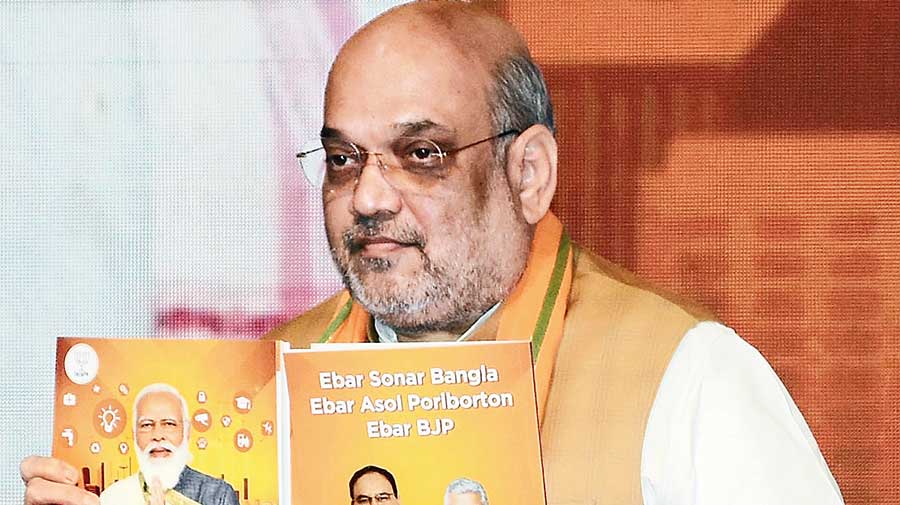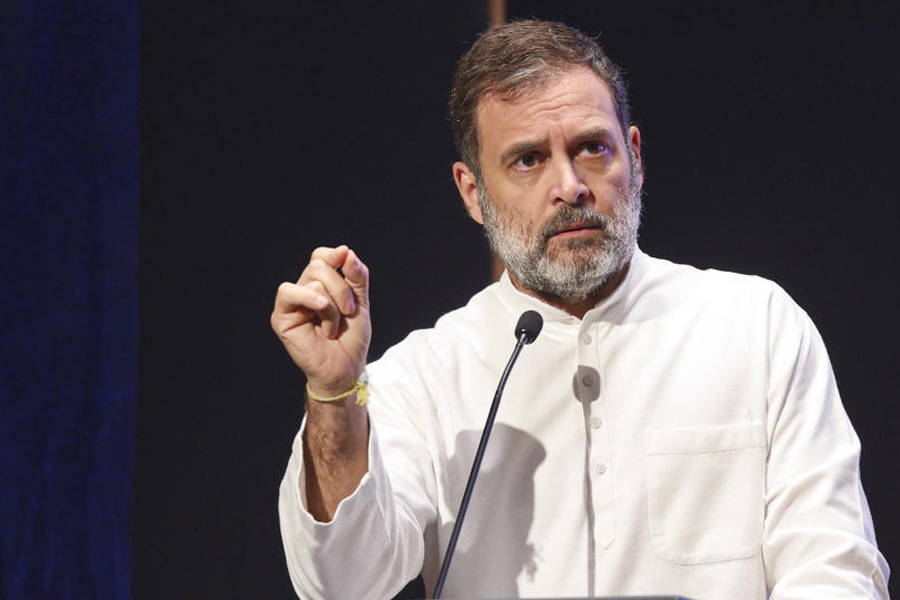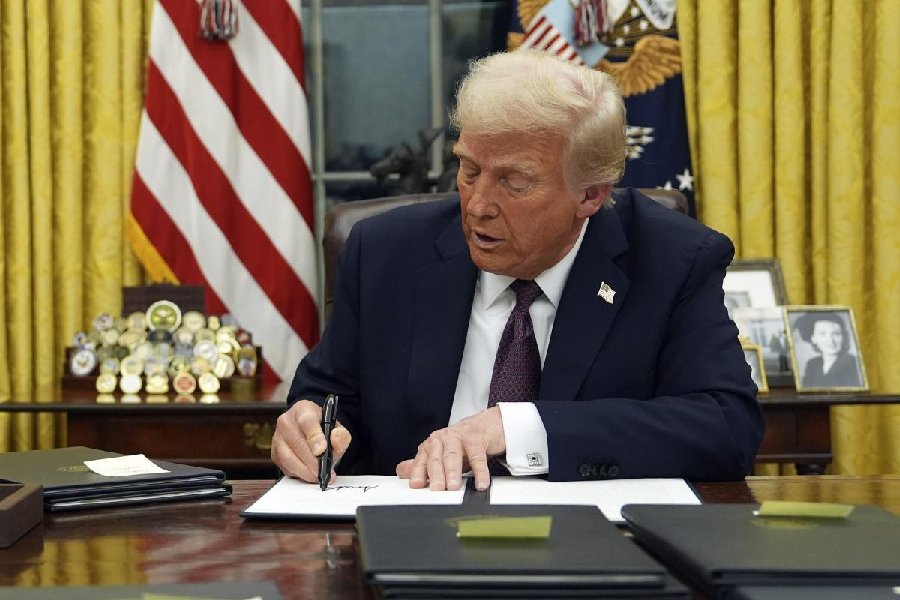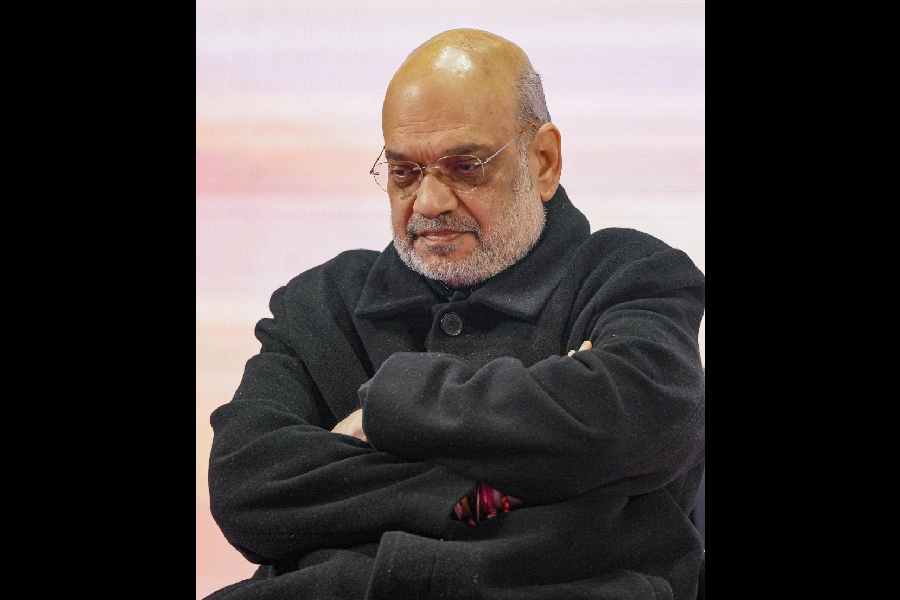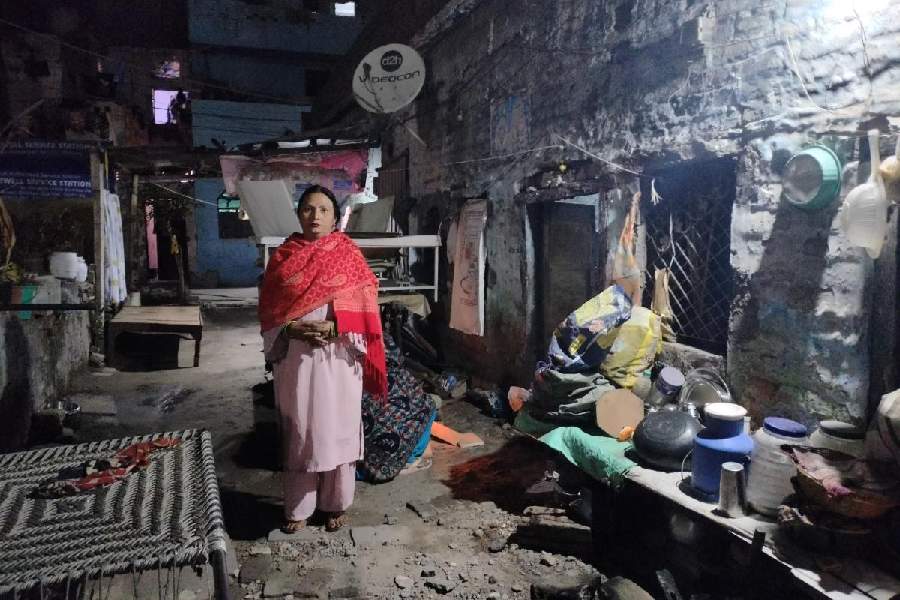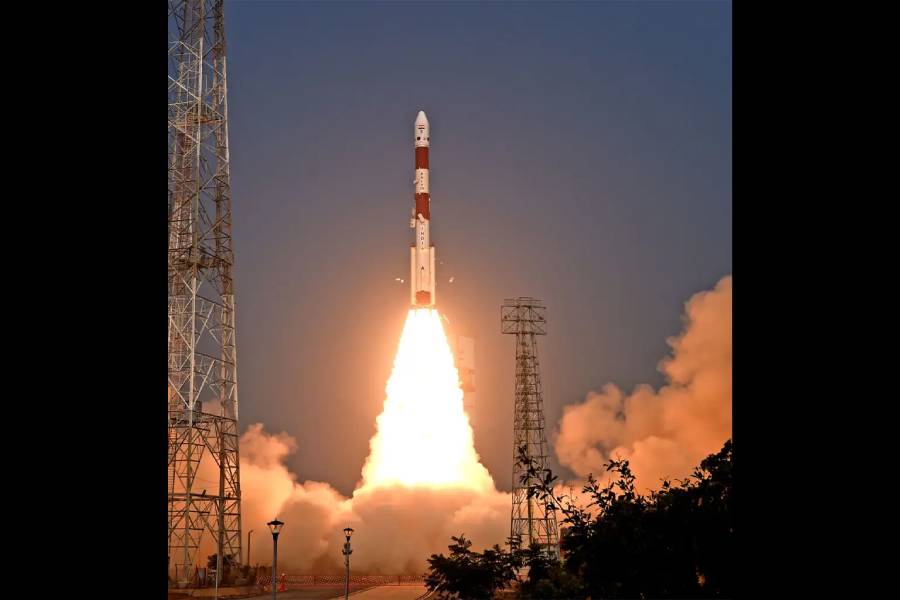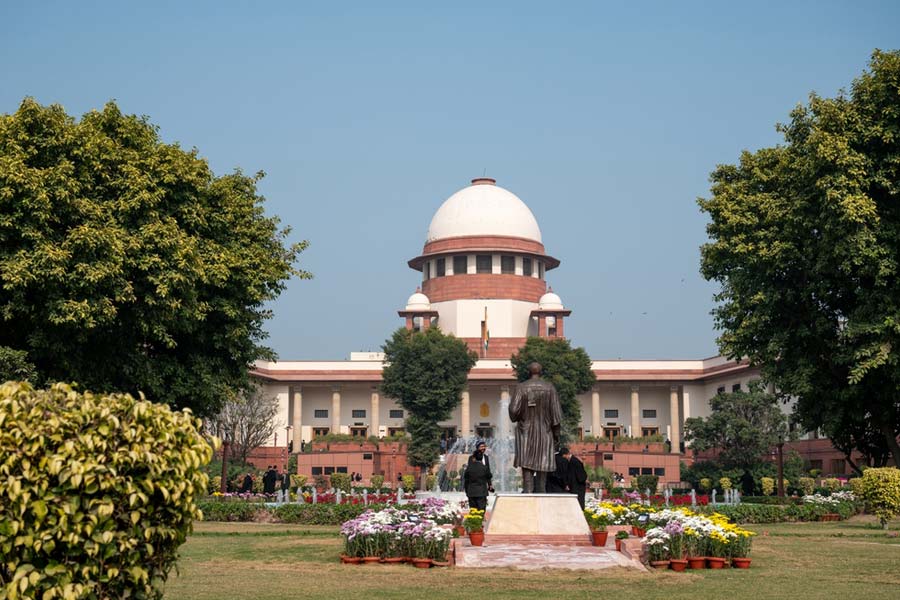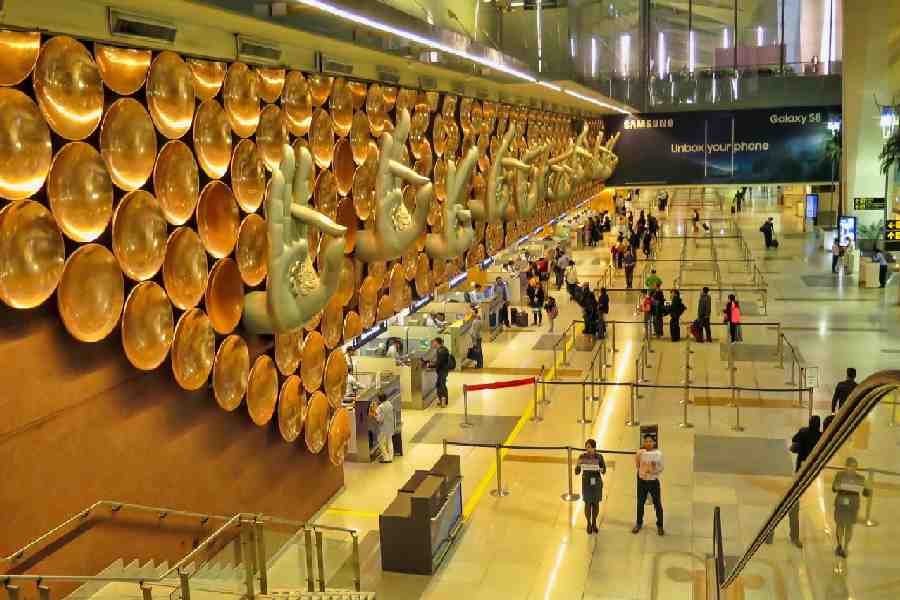Sir — While releasing the Bharatiya Janata Party’s election manifesto, ‘Sonar Bangla-Sankalpa Patra’, in West Bengal, the Union home minister, Amit Shah, made a grand statement: “We have decided that not only human beings, even a bird will not be able to fly in from beyond the border, such will be the security arrangements at the border” (“CAA + intruder net + Aarti = Sonar Bangla”, March 22). And yet, in recent times, China has intruded into Indian territory in Ladakh and encroached upon more than 50 kilometres of land in Arunachal Pradesh, as claimed by the BJP member of parliament, Tapir Gao, in the Lok Sabha. It is strange that the government talks about strengthening the West Bengal-Bangladesh border to prevent immigration and departures when the India-China border still remains porous. Interestingly, a BJP win in the West Bengal assembly elections is touted as the sine qua non of making the planned security arrangements. This is nothing but targeted demagogy to boost the party’s electoral prospects.
Haridasan Rajan,
Kozhikode, Kerala
Sir — The recently released BJP manifesto for the upcoming assembly polls in West Bengal once again places monetary benefits at the centre of the party’s promises. The declaration to transfer Rs 1,000 for five years to refugee families, possibly in reference to the Matuas, through the Chief Minister Refugee Welfare scheme, reeks of populism. It is reminiscent of Narendra Modi’s promise of depositing Rs 15 lakh into every Indian citizen’s bank account — this was later ‘clarified’ as being an idiomatic expression — for the 2014 Lok Sabha polls. Rather than making such empty promises, the BJP should focus on concrete actions pertaining to the welfare and development of Bengal.
Raghunath Pramanik,
Calcutta
Sir — Before the elections, all political parties make numerous promises to entice the public. But few declarations are fulfilled when candidates come to power. The saffron party, in its West Bengal election manifesto, released on Sunday, vowed to increase the minimum wage of tea garden workers to Rs 350. It must be noted that the BJP made a similar promise in Assam for the 2016 assembly elections, but it is yet to be fulfilled.
It is evident that the party is simply hoping to entice voters with its wide variety of claims. The Trinamul Congress, too, is guilty of breaking its promises post-election. The people of Bengal must introspect thoroughly before casting their vote.
Shyamal Thakur,
Ramnagar, East Burdwan
Sir — The BJP’s manifesto for the upcoming Bengal polls, ironically, mirrors the promises made by the party in Tripura during the 2018 assembly polls. However, much of the vision, as drafted in the poll manifesto, never turned to reality in the state. For instance, the BJP declared that one youth from every household in Tripura would receive a job. The saffron party further promised that all temporary jobs in the government sector would be made permanent. The BJP has similarly promised employment for at least one member of each family in the Bengal manifesto.
Three years down the line, the government in Tripura announced that not only are there no government jobs as promised, but it will be outsourcing departmental jobs from now on. Furthermore, the BJP had announced the setting up of the seventh pay commission for state government employees. This is yet to be implemented, and reportedly 17 per cent dearness allowance arrears have not been paid.
These are only some of the inconsistencies observed between the BJP’s pre-election promises and post-election realities. Voters should keep the party’s track record in mind before being swayed by its declarations.
Khokan Das,
Calcutta
Towards equality
Sir — There is no doubt that navigating everyday life can be tremendously difficult for differently-abled people in India. It is, however, not their daily struggles but the hurdles they face in exercising the right to vote that were recently discussed by a panel at a club in Calcutta. Problems range from narrow entrances through which wheelchairs cannot fit to the absence of Braille guides and ramps at polling booths — all of which can be remedied easily. While the home-based postal ballot system can be used by voters with special needs, the polling booth itself must be democratized so that it is accessible to all.
Rupa Sen,
Calcutta

